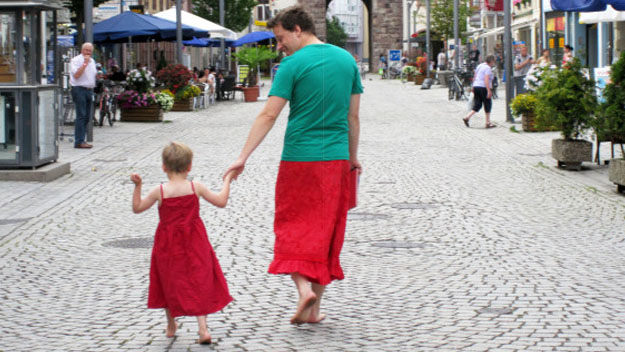Financially struggling parents-to-be are looking to crowdfunding to help foot their baby bill.
A child is an expensive addition to any family, even more so when couples struggle to conceive naturally, which has prompted some wannabe parents to turn to crowdfunding to help keep their baby hopes alive.
Missouri couple Tawana Ashcraft, a beauty worker, and her husband, Travis, a video store manager, have struggled with fertility and were floored when their doctor told them they would have to pay $18,000 to have a shot at IVF.
“That was very stressful,” Tawana told the Washington Post.
But the Ashcrafts, who both have children from previous relationships, decided they weren’t going to let money problems destroy their plans to expand their family and have set up a GoFundMe cause to help raise the extra $9,000 they need to try a fertility cycle.
Kickstarter, GoFundMe, Indiegogo and other online do-it-yourself fundraising companies allow strangers to contribute money to a project and cowdfunding a pregnancy is part of what GoFundMe calls “a recent upward trend” in assisting couples desperately seeking offspring.
While some sites do take a cut of the donations – GoFundMe takes five per cent – that hasn’t deterred people from utilising the platforms it to help foot their baby bill.
One quick search of “IVF” within the site reveals hundreds of results, including a young couple from Australia.
According to the donation proposal by a woman named Kristy Kerr, she and her husband have struggled with conceiving because of a medical condition and have turned to the site to “make our baby dreams come true” and raise $10,000 for surrogacy.
The post reads: “The possibility of having our OWN child exists but we need the help of others to make this happen! The total cost of this arrangement is more than double what we are hoping to raise, but we are diligently saving our money as well.”
While the infertility struggle might have once been something many couples chose to keep quiet, others who are seeking donations have comprehensively detailed their medical issues on their crowdfunding pages.
According to the GoFundMe page, Kerr and her partner have generated $355 in 11 months through a trickle of donations ranging from $15 – $100 – a figure similar to the Ashcrafts who have so far managed to garner $210 in support.
But Tawana tells the Washington Post she is not dissuaded by the financial struggle and it’s not hard to understand her hopeful outlook when others have had success, like a Detroit couple who received nearly $4,500 in donations for their IVF attempt and a young couple from Albuquerque who raised $3,700.
“I can’t say it’s outrageous,” Tawana said, “if it works.”
Earlier this week a clinic in Sydney’s CBD has agreed to cut out-of-pocket expenses by bulk-billing the majority of services involved with the fertility treatment.
Primary Health Care’s cuts could slash IVF treatments to an estimated $500, compared to the $4000 that can be charged in private clinics.
The clinic’s chief executive, Dr Edmund Bateman, told the Daily Telegraph that the clinic’s provider was large enough to absorb extra costs and offer bulk-billing for IVF treatments.
“If the medical procedure has an [Medicare] item number we will bulk-bill it and you pay nothing for it,” Dr Bateman said.
Fertility patients at the clinic would still have to cover those services not included in Medicare bulk-billing.


